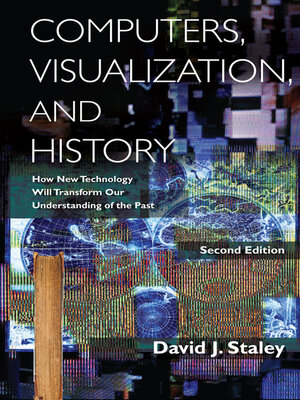Computers, Visualization, and History
ebook ∣ How New Technology Will Transform Our Understanding of the Past
By David J Staley

Sign up to save your library
With an OverDrive account, you can save your favorite libraries for at-a-glance information about availability. Find out more about OverDrive accounts.
Find this title in Libby, the library reading app by OverDrive.



Search for a digital library with this title
Title found at these libraries:
| Library Name | Distance |
|---|---|
| Loading... |
This visionary and thoroughly accessible book examines how digital environments and virtual reality have altered the ways historians think and communicate ideas and how the new language of visualization transforms our understanding of the past. Drawing on familiar graphic models—maps, flow charts, museum displays, films—the author shows how images can often convey ideas and information more efficiently and accurately than words. With emerging digital technology, these images will become more sophisticated, manipulable, and multidimensional, and provide historians with new tools and environments to construct historical narratives. Moving beyond the traditional book based on linear narrative, digital scholarship based on visualization and hypertext will offer multiple perspectives, dimensions, and experiences that transform the ways historians work and people imagine and learn about history.
This second edition of Computers, Visualization, and History features expanded coverage of such topics as sequential narratives, 3-D modeling, simulation, and video games, as well as our theoretical understanding of space and immersive experience. The author has also added "Guidelines for Visual Composition in History" for history and social studies teachers who wish to use technology for student assignments. Also new to the second edition is a web link feature that users of the digital edition can use to enhance visualization within the text.







